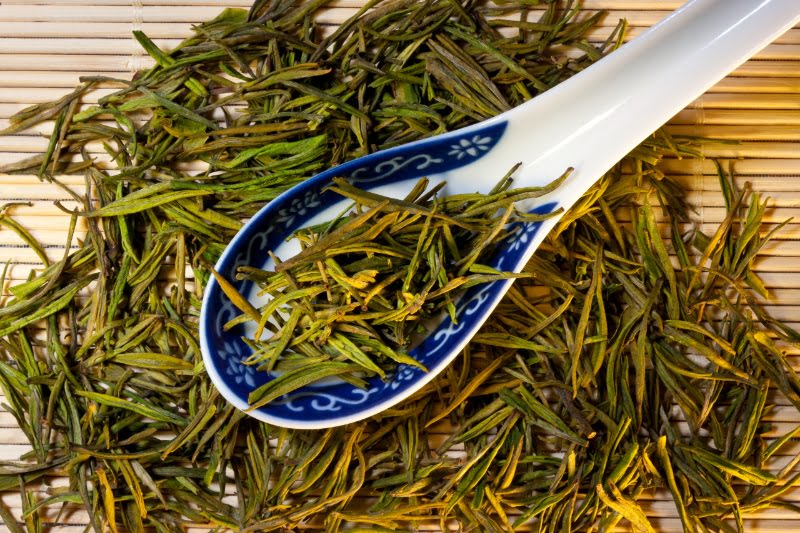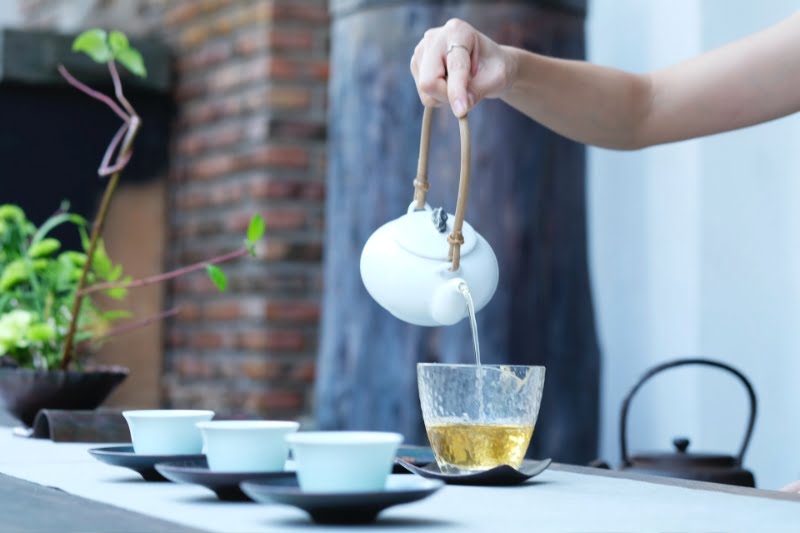Green tea is one of the best natural ways to treat erectile dysfunction and low sex drive, which are both signs of low testosterone levels.
To help you with this, read more to find out the effect of green tea on our bodies!
How Does Green Tea Affect Testosterone Levels?
Green tea is produced from the leaves and buds of Camellia sinensis and is one of the most widely consumed beverages in the world.
Even better, green tea appears to activate the body's antioxidant enzymes in the liver, small intestine, and lungs, enhancing its antioxidant effects.

The support of healthy liver function results in more stable testosterone levels and better male hormonal balance because the liver is the site of hormone breakdown.
Green tea extract can be an adaptogen for low testosterone to maintain healthy testosterone levels by raising circulating testosterone levels.
Green tea also helps testicular cells make more testosterone by protecting them from getting hurt.
BOTTOM LINE: Green tea can increase testosterone production if it’s decreased and lower levels if they are too high.
What Are the Health Benefits of Green Tea for Testosterone?
There are several health benefits associated with green tea that can help you with testosterone problems:
- Boosts brain function - Green tea contains the amino acid L-theanine, which has a calming effect by raising dopamine levels and serotonin in the brain.
- Burns fat - Certain studies suggest green tea may enhance metabolic rate and fat burning(1). This is attributed to caffeine and plant components like catechins having natural thermogenic effects.


- Reduces risk of heart disease - A study discovered a relationship between daily green tea consumption and a reduced risk of cardiovascular disease death(2).
Are There Any Risks and Side Effects Associated with Taking Green Tea to Boost Testosterone?
When you drink a lot of green tea, there are a number of risks and side effects that can happen:
- Headaches - Due to its caffeine content, green tea might give some people headaches.
- Vomiting - Because of how proteins interact in the intestines, green tea tannins have been associated with nausea, vomiting, and constipation when taken in excess.
- Irregular heartbeat and blood pressure - According to a few short studies, green tea may cause irregular heartbeats and impact some people's blood pressure.
- Insomnia - Caffeine is detrimental to sleep. Despite having very little caffeine, green tea might make it difficult for some people to fall asleep.
How Does Green Tea Compare to Other Testosterone-Boosting Supplements?
Unlike other testosterone-boosting supplements, green tea is ALL ORGANIC and provides a wide range of health benefits and a fair share of minor side effects.
On the other hand, testosterone-boosting supplements are manufactured through machines and may contain some added inorganic ingredients.
What Dosage of Green Tea is Effective for Boosting Testosterone?
According to the National Center for Complementary and Integrative Health (NCCIH), a part of the National Institutes of Health, drinking up to three cups of green tea a day is safe.


However, the organization warns that large doses may interact with other drugs, such as those for heart issues or high blood pressure.
What Are the Most Effective Ways to Take Green Tea for Boosting Testosterone?
There are tons of effective ways to take green tea to boost testosterone. The best advice is to drink green tea 30–45 minutes before or after meals.
However, if you want a good night's sleep, you should drink it at night before sleeping for 30–45 minutes.
How Long Does It Take for Green Tea to Boost Testosterone Levels?
You can feel the minor health benefits of green tea after 20 minutes to 1 hour of consumption.
But if we look at how long green tea takes to boost testosterone levels, it may take 14–28 days of constant drinking.
Can Green Tea Be Used as a Long-Term Testosterone-Boosting Supplement?
Green tea is an effective organic product to use as a long-term testosterone-boosting supplement.
This is because it DOES NOT contain chemicals that may harm the body, unlike manufactured supplements.


However, be cautious as over-consumption of green can lead to experiencing minor side effects.
Note: Green tea should only be consumed three times per day!
Is There Any Natural Way to Boost Testosterone Besides Green Tea?
Listed below are the proven alternative methods to help you boost your testosterone levels naturally:
- Getting Enough Sleep
- Vitamin D from Sun Exposure
- Limit Alcohol Intake
- Avoid Prohibited Drugs
- Exercise Daily
Frequently Asked Questions (FAQ)
We answer your most common questions below:
Does Green Tea Lower Testosterone Levels?
NO. Green tea is significant for boosting testosterone levels. However, green tea also plays a vital role in testosterone's decline and testes' morphology. And this happens because too much consumption of green tea makes the body get used to it.
Does Green Tea Have Other Benefits Than Boosting Testosterone?
YES. It has been demonstrated by science that drinking green tea regularly raises neurotransmitter levels. The amino acid L-theanine is found in green tea. It lowers cortisol levels and raises serotonin, dopamine, and GABA levels.
How Does Green Tea Benefit Testosterone in Women?
Green tea benefits women as it is an effective treatment and prevention aid for obstructed arteries, endometrial and ovarian cancer, low blood pressure, osteoporosis, and changes in cervical cells caused by the human papillomavirus (HPV).
Conclusion: Does Green Tea Boost Testosterone?
If you think you have decreased testosterone levels, green tea is a great solution to restore it!
Green tea helps regulate and keep testosterone levels at a healthy level. It also improves brain function, burns fat quickly, and lowers your risk of heart disease.
With just three to five cups of green tea a day, you can be one step closer to achieving the best and healthiest body you can ever have.
- Mousavi, Ateke et al. “The effects of green tea consumption on metabolic and anthropometric indices in patients with Type 2 diabetes.” Journal of research in medical sciences : the official journal of Isfahan University of Medical Sciences vol. 18,12 (2013): 1080-6.↩
- Townsend, David et al. “Epigallocatechin-3-gallate remodels apolipoprotein A-I amyloid fibrils into soluble oligomers in the presence of heparin.” The Journal of biological chemistry vol. 293,33 (2018): 12877-12893. doi:10.1074/jbc.RA118.002038↩
